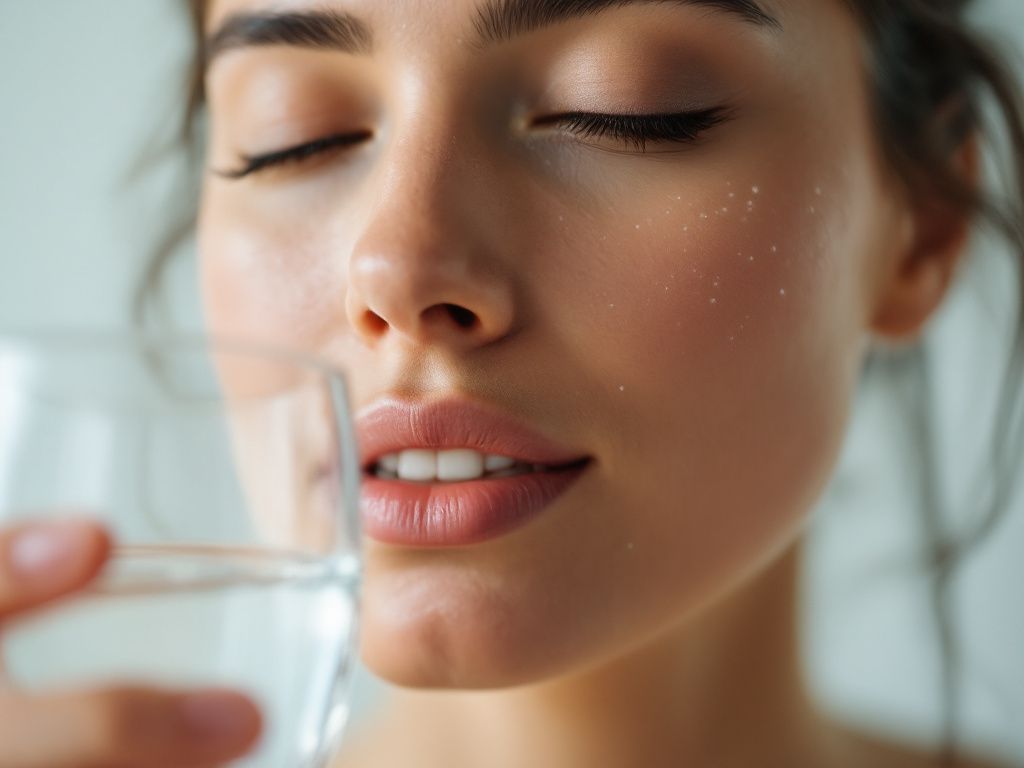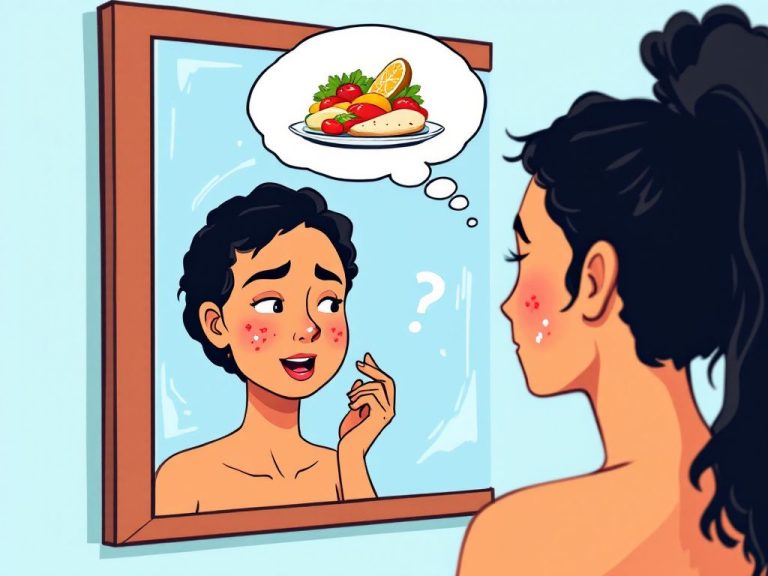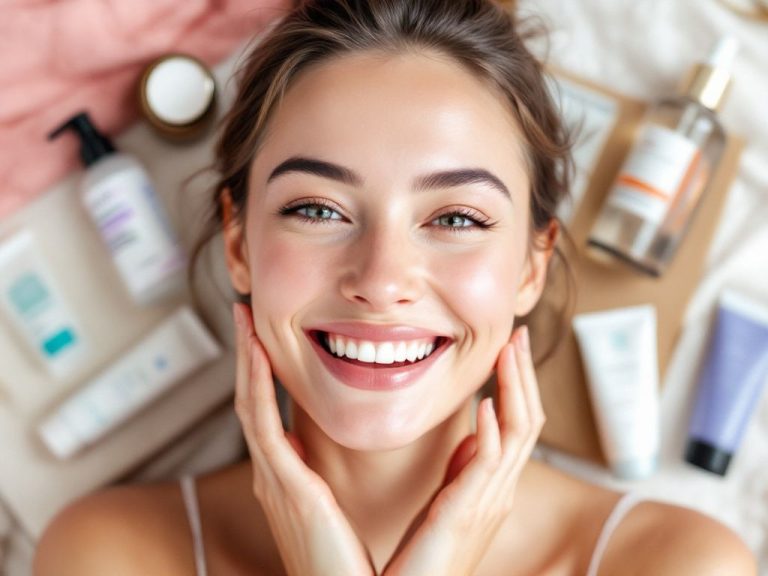Ever find yourself staring at the mirror, grumbling about an unexpected breakout? You’re not alone. We’ve all been there—wondering what on earth is going on with our skin. It might surprise you to hear that the solution isn’t always about finding the right cream or serum. Often, it’s much simpler than that. Let’s talk hydration and how it holds the key to clearer skin. Grab a glass of water, and let’s dive in!
Table of Contents
ToggleWhat’s the Connection Between Skin Hydration and Acne?
We’re told to drink enough water from an early age, but life gets busy. And let’s face it—hydration isn’t exactly at the top of most people’s daily to-do list. But did you know that not drinking enough water can wreak havoc on your skin? It’s true, and here’s how.
When your body is dehydrated, your skin loses its natural glow. It becomes dry and loses elasticity. This dryness means your skin compensates by producing more oil to protect itself. More oil means more chances for pores to get clogged, leading to those pesky breakouts. So, there’s a direct line from dehydration to oil overproduction and then to acne.
Trust me; keeping hydrated is a game-changer in maintaining clear skin. Once you understand the interplay between your water intake and skin hydration, the path forward becomes a lot clearer…literally!
The Dehydration Effects: More Than Just Dry Skin
Alright, so we know dehydration can lead to acne, but that’s just the surface of what we’re dealing with. The dehydration effects are far more widespread.

The Broad Spectrum of Dehydration Effects:
- Dryness and Flakey Skin: This looks and feels as uncomfortable as it sounds. Dry skin can lead to cracking and peeling, a harsh reminder to up your water game.
- Accelerated Aging: It’s unfortunate but true. Insufficient hydration can speed along those fine lines and wrinkles.
- Increased Sensitivity: Your skin becomes more reactive and sensitive to products or environmental factors.
- Reduced Capacity to Heal: Your skin gets sluggish with cell turnover, leaving flaws like acne marks and scars linger longer.
So when you’re looking at the bigger picture, reaching for another coffee instead of water affects a lot more than just your complexion.
How Much Water Should I Drink?
This question is like the worn-out age-old debate, right? We’ve all heard “eight glasses a day,” but here’s the kicker—not all fluids hydrate equally. Coffee and alcohol can actually dehydrate you. So let’s hash it out with some guidelines that make sense in real life.
Guidelines for Effective Hydration:
- 8×8 Rule: Aim for eight 8-ounce glasses, but personal needs vary.
- Listen to Your Body: Thirst is a guide – when you’re thirsty, drink water.
- Consider Activity Level: More activity typically demands more water intake.
- Environmental Conditions: Hot weather or high altitudes increase fluid requirements.
- 5. **Listen to Your Body’s Unique Needs: Feeling sluggish might be solved by hydrating better.
Still not convinced? Just give it a try and notice how you feel.

Proactive Steps to Enhance Skin Hydration
Okay, let’s get practical. Drinking water isn’t the entire story. Incorporating a whole suite of hydration strategies can dramatically improve your skin’s texture and feel. Let’s make it tangible.
Boost Skin Hydration From Inside and Out:
- Eating Water-Rich Foods: Cucumbers, oranges, carrots—enjoy the bonus hydration.
- Humidifier Use: Indoor air can be drier than you think, especially during winter.
- Moisturizer Application: Post-shower, while skin is still damp, trap that moisture in.
- Protection from the Elements: The sun and wind can sap your skin’s moisture, so gear up with sunscreen and protective clothing.
Here’s a quick table breakdown:
| Approach | Action |
|---|---|
| Internal Hydration | Water, herbal teas, and hydrating foods |
| External Aid | Efficient use of moisturizers and serums |
| Environmental Factors | Use of humidifiers and skin protection |
Reinforce these steps regularly, and you’ll likely notice a shift towards clearer, healthier skin.
Acne Management: Managing Those Ups and Downs

On days when stress and hormones create perfect breaching conditions for another breakout, mixed feelings are normal. But you’re better prepared now—hydration is not a magic wand, it’s a strong contender in the acne battle arena.
Sensible Acne Solutions to Adopt:
- Consistent Skincare Routine: Gentle-cleanse and moisturize – the essentials.
- Dietary Considerations: Opt for balanced meals overflowing with vital nutrients.
- Gentle Exfoliation: Not too often; once or twice weekly is sufficient.
- Stress Management: Ideas like yoga, reading, or hanging out with loved ones—choose what works for your sanity.
- 5. **Hydration’s Front Line Role: Reminder to keep fluids steady throughout the day.
Experiment with these bits of wisdom. Trust me; testing these suggestions can lead to surprisingly pleasant changes.
Embrace the Hydration and Health Journey
Some people see results quickly, others might take longer. It’s fine! Patience and consistency are your companions here. There’s no overnight fix, but those consistent daily tweaks can take you far.
And hey, if you find yourself sipping a fancy herbal tea or sneaking an extra facial mist, you aren’t alone. We’re all in this journey to healthier hydration—and ultimately healthier skin—together. Give your body that purifying water it craves, and wait to see if your reflection looks a little brighter, a tad more serene.
In the end, remember: hydrate first, hydrate last, and your skin might just say “thank you” without those stubborn words called breakouts.
Frequently Asked Questions
What are the common symptoms of dehydration?
Common symptoms of dehydration include thirst, dry skin and lips, dark-colored urine, less frequent urination, headache, muscle cramps, dry cough, low blood pressure, loss of appetite or sugar cravings, and flushed skin. In severe cases, symptoms can include dizziness, rapid heartbeat, rapid breathing, sunken eyes, sleepiness, confusion, or irritability[1][3][4).
What causes dehydration?
Dehydration can be caused by not drinking enough fluids, losing too much fluid, or a combination of both. Common causes include diarrhea, vomiting, fever, excessive sweating, and increased urination due to conditions like diabetes or medications such as diuretics. Additionally, not drinking enough water during hot weather or vigorous exercise can lead to dehydration[2][3][5).
What are the potential complications of dehydration if left untreated?
If left untreated, dehydration can lead to serious complications such as heat exhaustion or heatstroke, seizures, kidney failure, coma, shock, and brain swelling. It can also result in low blood volume shock and fluid buildup in the lungs (pulmonary edema) if too much fluid is consumed too quickly. In pregnant women, dehydration can lead to premature labor and other serious health issues for the baby[1][2][3).
How can dehydration be treated and prevented?
Mild to moderate dehydration can usually be treated by drinking more fluids. For severe dehydration, immediate medical treatment, including intravenous (IV) fluids, may be necessary. To prevent dehydration, it is important to drink fluids regularly, especially during hot weather, illness, or vigorous exercise. Adding water-rich foods to your diet and using oral rehydration solutions when needed can also help[1][3][4).
References- WebMD. (2023). Dehydration – Signs, Symptoms, Causes, and Prevention.
- Mayo Clinic. (2023). Dehydration – Symptoms & causes.
- Harvard Health Publishing. (2024). Symptoms of dehydration: What they are and what to do if you experience them.
- NHS. (2022). Dehydration.
- MedlinePlus. (2023). Dehydration.








